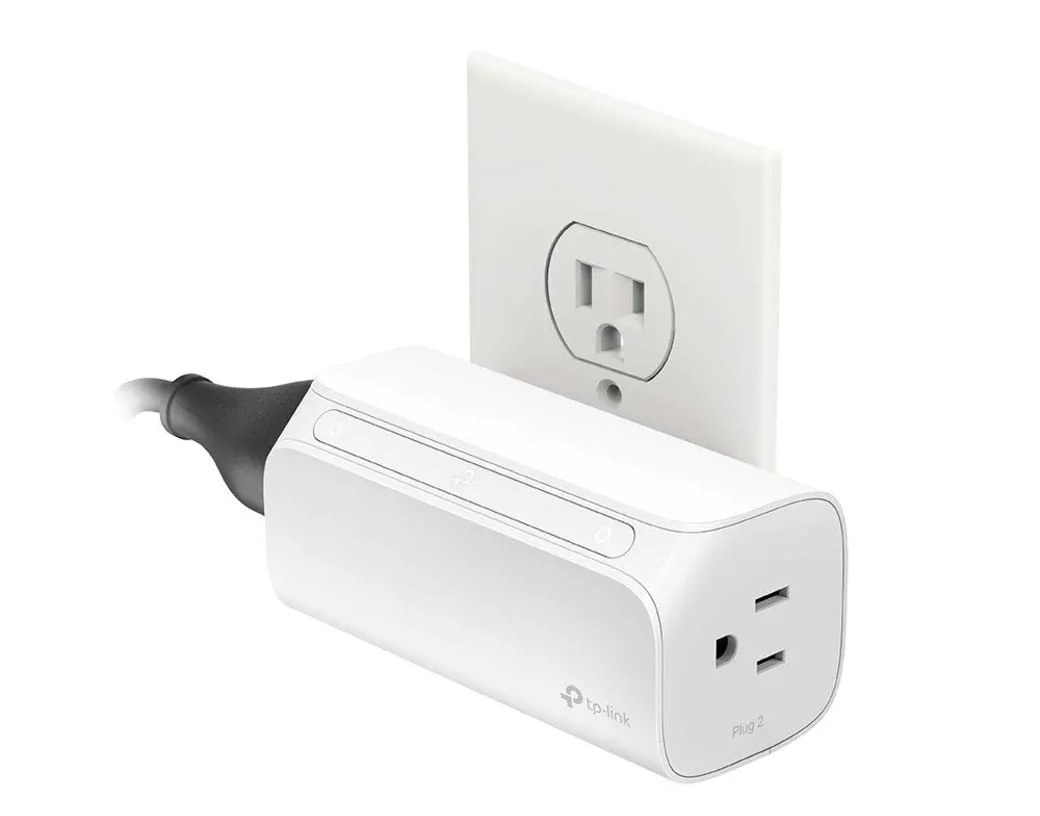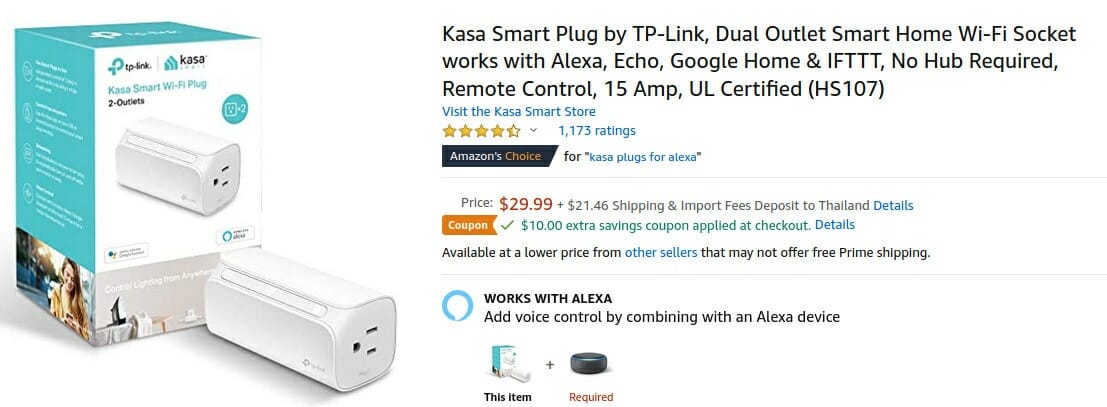WiFi smart sockets to control home appliances have been around for a few years, and one of my favorite companies is Sonoff as they offer a variety of affordable smart plugs pre-loaded with eWelink firmware and compatible with open-source firmware like Tasmota and ESPurna.
The company is also attentive to safety. communicate issues with customers, and recently wrote a post entitled “Safety is our responsibility” where they detail all steps taken to make sure their mains connected device sare safe to use. Sadly that does not include safety certifications like UL/ETL, or TUV which may have implications for your home insurance depending on where you live, and for peace of mind, it’s always good to have a third verify your design for safety.
Which brings me to the main point of this point, as a UL-certified dual-outlet smart socket, namely TP-Link Kasa Smart Plug, is currently on sale for $19.99 when ticking for the $10 discount coupon. [Update: They also have a promo for an UL-certified smart switch for $14.99]
TP-Link Kasa (HS107) smart plug key features and specifications:
- Input – 100-120V~ 60Hz up to 15A
- Output – Dual socket up to 15A load / 1.8 KW power
- Connectivity – 2.4 GHz 802.11b/g/n WiFi 4
- Misc – 2x LEDs for outlets status, WiFi LED, 2x control buttons
- Dimensions( H x W x D ) – 110 x 51 x 53mm
- Certifications – RoHS, FCC, IC, UL (See UL Inspector website)
- Temperature Range – 0 ºC ~ 40 ºC
- Humidity – 10%~90%RH, Non-condensing
 The smart socket can be controlled with the Kasa Smart app for iOS 10+ or Android 5.0+ smartphones with the usual features including manual on/off, timers, scheduled on/off, and voice control using Google Assistant, Amazon Alexa, or Microsoft Cortana. Note this plug will only work in the US and other countries with 110V mains.
The smart socket can be controlled with the Kasa Smart app for iOS 10+ or Android 5.0+ smartphones with the usual features including manual on/off, timers, scheduled on/off, and voice control using Google Assistant, Amazon Alexa, or Microsoft Cortana. Note this plug will only work in the US and other countries with 110V mains.
TP-Link HS107 UL-certified smart plug was released last year, but there are only a few reviews, including the video review embedded below.
You may also want to check out the user manual and installation guide on TP-Link download page.
Via Android Central, and thanks to Jon for the tip.

Jean-Luc started CNX Software in 2010 as a part-time endeavor, before quitting his job as a software engineering manager, and starting to write daily news, and reviews full time later in 2011.
Support CNX Software! Donate via cryptocurrencies, become a Patron on Patreon, or purchase goods on Amazon or Aliexpress







As CNX mentioned not all plugs are safe, here is a 4 day old example
https://www.bbc.co.uk/news/technology-54339973
Yeah, the last few years is a sordid sad story about security with these IoT devices (all brands). Googling for exploits on these things looks like a large city toxic land fill.
They obviously say they fixed everything and that they are fully secure now.
Up to you to believe and trust them 🙂
I don’t.